
Updated 2235 GMT
The health of at least one of the hunger striking students has deteriorated after a protest was launched demanding the reconstruction of a monument dedicated to the thousands of Tamils massacred at Mullivaikkal, that was destroyed by authorities on Friday night.
The hunger strike by the student at the University of Jaffna comes as outrage over the destruction grows, with Tamil political parties declaring a hartal across the North-East for Monday.

A doctor visited the protest site outside the university campus in the early hours of Monday morning, as heavy rain continued to fall in Jaffna.
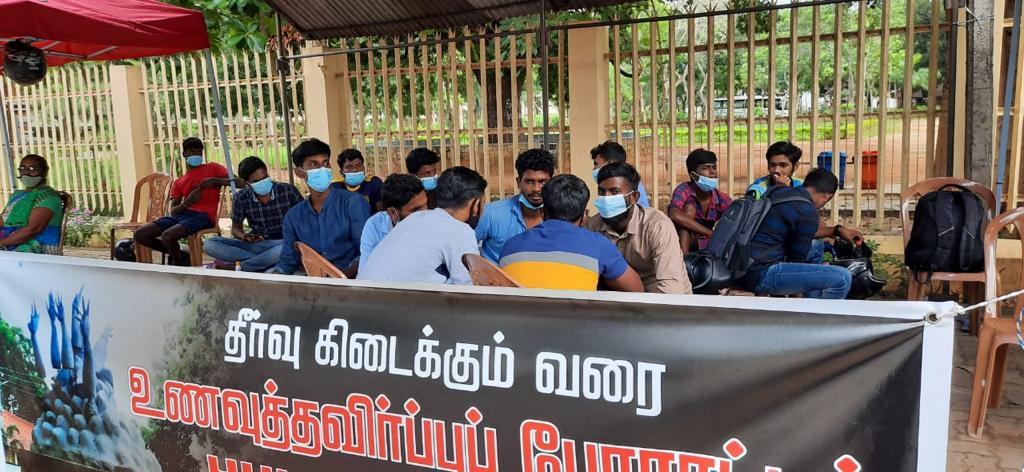
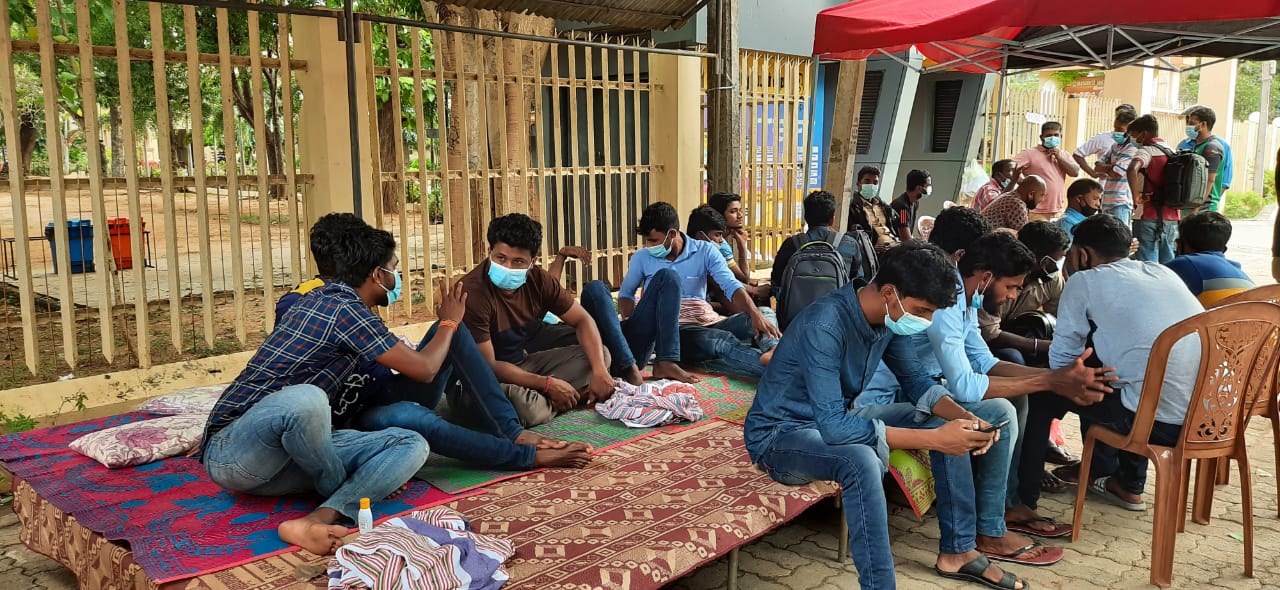
As news of the destruction broke out on Friday night, crowds began to gather at the campus gates. Sri Lankan security forces blocked the entrance to the campus, with at least two students arrested.
Protests continued throughout the night into Saturday, with politicians, civil society members all gathered at the campus gates, demanding the monument be reconstructed. Crowds continue to chant, calling for demilitarisation and the reconstruction of the monument, despite the heavy military presence and attempts by the security forces to claim that a number of people had tested positive for coronavirus.
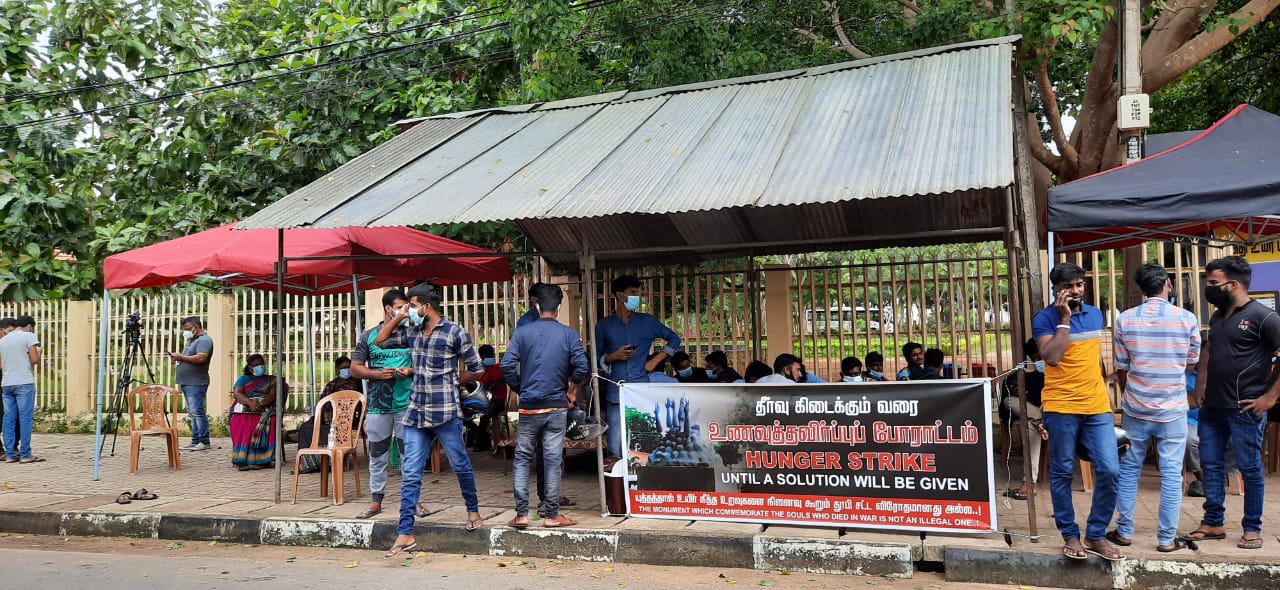
Braving surveillance by the Sri Lankan police, the students continued their fast in the rain after being refused initial permission by the police to erect a tent to stage their protest.
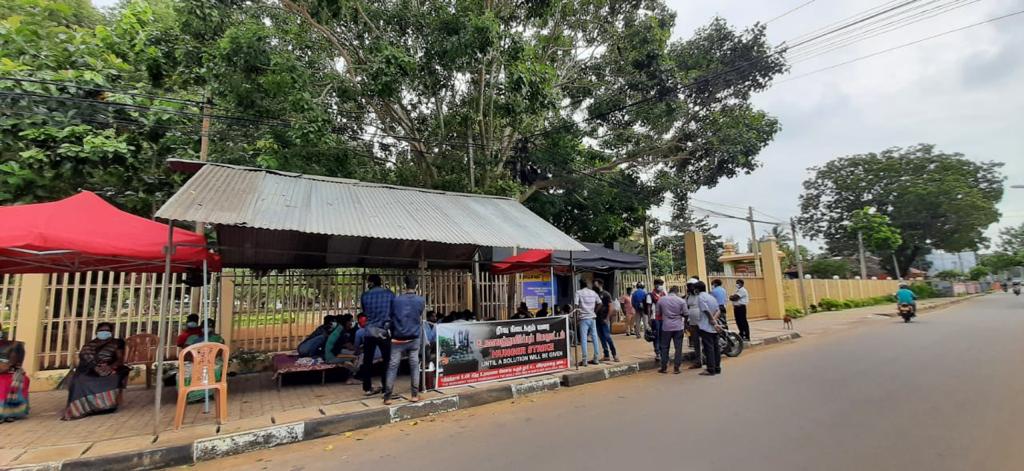
“The Mullivivakkal destruction was the culmination of the genocide against the Tamil people,” said a statement by the University Students’ Union, released this morning.
“This act is an insult not only to the university students but also to the entire Tamil people. It is also an act of denial of a people’s right to memory.”
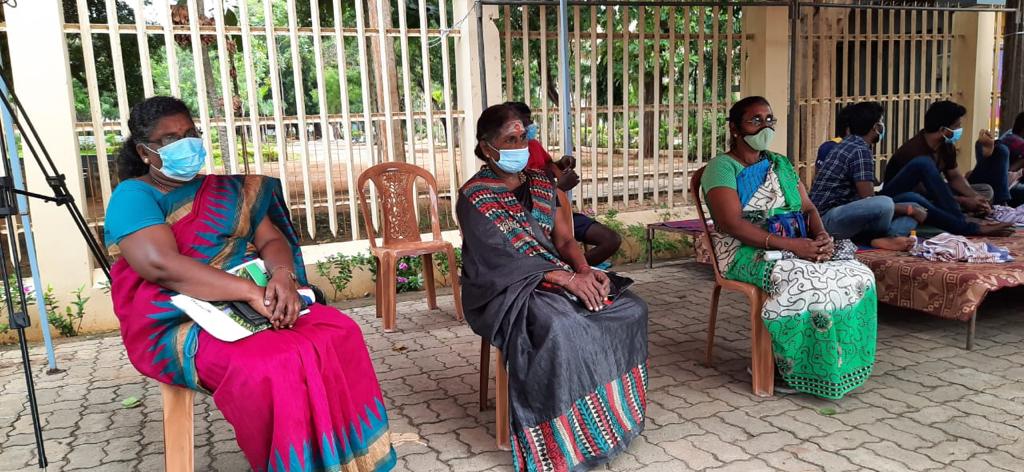
The destruction of the memorial has drawn global outrage as politicians from across the world denounced the act, including from the UK, Canada and across Tamil Nadu. Images of the destruction have also been shared thousands of times across social media.
The University’s Vice Chancellor meanwhile claimed he was under pressure from Sri Lanka’s defence and intelligence structures to remove the monument, as well as others on the campus.
We need your support
Sri Lanka is one of the most dangerous places in the world to be a journalist. Tamil journalists are particularly at threat, with at least 41 media workers known to have been killed by the Sri Lankan state or its paramilitaries during and after the armed conflict.
Despite the risks, our team on the ground remain committed to providing detailed and accurate reporting of developments in the Tamil homeland, across the island and around the world, as well as providing expert analysis and insight from the Tamil point of view
We need your support in keeping our journalism going. Support our work today.
For more ways to donate visit https://donate.tamilguardian.com.

